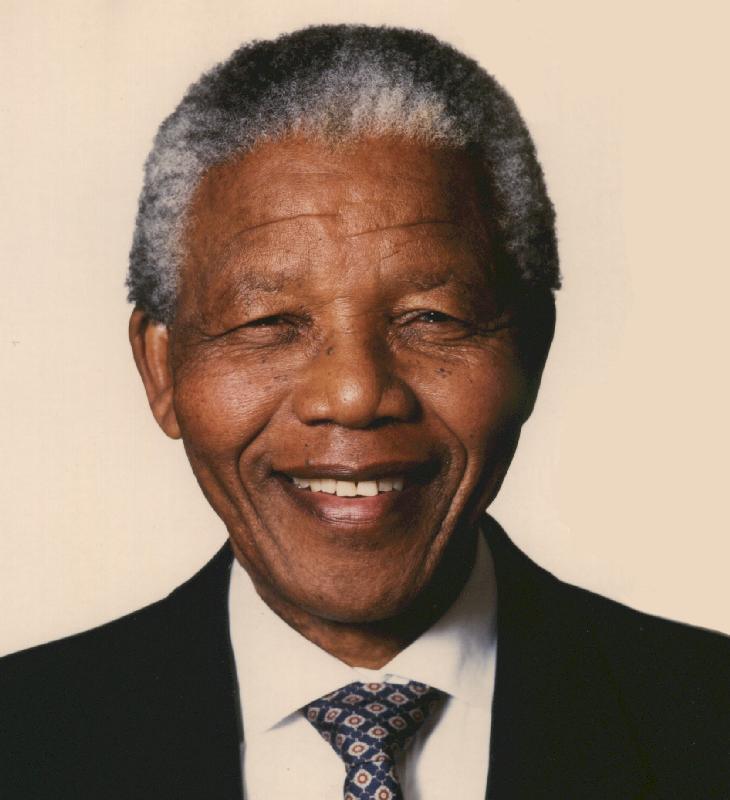Goodbye, Tata Madiba
 By Sabeehah Motala, LLB Law
By Sabeehah Motala, LLB Law
On Thursday 5th December, the world lost arguably the most iconic politician that ever lived. Mr Mandela – a leader, father of a nation, revolutionary, freedom-fighter, boxer and lawyer – passed away in the comfort of his home in Johannesburg, South Africa. The anti-Apartheid hero has found eternal peace, leaving behind a diverse legacy.
Mr Mandela joined the African National Congress (ANC) in 1942 and became a lawyer, opening the first black law firm in South Africa in 1952. He chose this career, as he says in Long Walk to Freedom, in order to understand the problems of the people he hoped one day to lead. He showed his dedication to the people, making sure that he could legitimately represent and fight for oppressed South Africans. Mr Mandela sacrificed his time, family life and freedom for the South African people, spending 27 years in jail, mostly served at the infamous Robben Island prison.
Mr Mandela, along with many other brave people, fought for liberation and peace, giving South Africans a free, equal land and a constitution, with guidelines on how to govern. Along with this gift came government responsibility, which at the moment is not necessarily being fulfilled, with problems such as high rates of poverty, crime and HIV/AIDS. South Africa is still a young nation, and Mr Mandela recognised that the nation has a responsibility to work together to rebuild. This legacy of responsible freedom is the tool to rectify the issues facing the new South Africa.
“I have fought against white domination and I have fought against black domination,” said Mr Mandela in his famous ‘I Am Prepared to Die’ speech from the dock of the Rivonia treason trial, showing that even though he fought against a racist white regime, he never wanted to hold it against them. His aim was equality for all, not only freedom for oppressed people, but equal participation for all people of all colours, in the legacy of a democratic South Africa.
In light of his great achievements in breaking the Apartheid regime, some may have forgotten the darker sides of Mr Mandela’s history. Indeed, many have criticised his involvement with the militant wing of the ANC, Umkhonto we Sizwe, “Spear of the Nation”. But in his ‘I Am Prepared to Die’ speech and in his autobiography, Mr Mandela points out that the choice was made after careful consideration among ANC leaders and in the context of an increasingly violent response from the Apartheid government, especially the 1960 Sharpeville Massacre, one of the most shocking incidents of police brutality ever. He said: “We have no choice but to hit back by all means in our power in defence of our people, our future, and our freedom.” Violence was a last resort for the ANC. Even this leaves a legacy: if there is something we believe in, something so fundamentally and universally right, we must not give up, even if it means doing something that would otherwise have been morally questionable. But this goes hand in hand with the second part – violence, and by analogy other morally questionable acts, should be an absolute last, responsible, informed resort.
However, perhaps the most important legacy that Mr Mandela left the world is also the one that distinguished him. Forgiveness and reconciliation are among the crucial processes in the Rainbow Nation. He realised that a peaceful nation cannot be built on a bitter foundation of grudges and vengeance. Even the harshest oppressors can be forgiven if there is enough willingness to do so.
However much his past can be criticised, it is difficult to dispute the fact that Mr Mandela was an enigmatic, courageous and humble leader. He was a figure to inspire us all, not only in our political actions, but also our daily interactions. Indeed, he has had a great impact on my life. I shall leave you with a quote that inspired the way I choose to live: “Man’s goodness is a flame that can be hidden, but never extinguished.”




